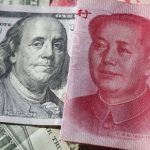Little-known Chinese hedge funds are betting big on an oil price recovery on the Shanghai-traded yuan-denominated oil futures and are set to fill up all available storage for delivery of those futures by the end of next month, industry sources told Reuters on Monday.
The financial investors—hedge funds backed by rich individuals—are dubbed ‘hermit’ investors by a state oil official, who spoke to Reuters. According to the Reuters’ sources, those investors have been betting on rising oil prices since early April, pushing the Shanghai yuan oil futures above the international benchmarks Brent Crude and WTI Crude.
The rising Shanghai prices have led to major Chinese state oil firms, including PetroChina and Sinopec, delivering oil into the crude oil futures contract. This is pushing even the expanded storage capacity for delivery of the Shanghai oil futures to the limits and it could be full by the end of June, industry and trade sources tell Reuters.
The storage capacity has been doubled over the past two months to 57 million barrels, while at least 50 million barrels of crude is expected to be delivered into the storage backing the Shanghai-traded Chinese oil futures contract.
Since April, Chinese investors have been betting that crude oil prices will rebound, and, according to Reuters’ sources, the so-called hermit investors are expected to hold the crude until the market structure continues to be in contango—the state of the market in which prices for delivery at later dates are higher than prompt prices.
Retail Chinese investors, however, were badly burnt last month by the negative WTI Crude prices, after they had invested in a crude oil futures-linked product of a Chinese bank. Bank of China, one of the largest lenders in the country, was selling a paper investment structured product for retail investors linked to international futures contracts, including WTI Crude and Brent Crude. But the consequences of the negative WTI Crude prices went far and wide, burning even retail Chinese investors who aren’t allowed to invest in the international crude oil futures markets directly.







